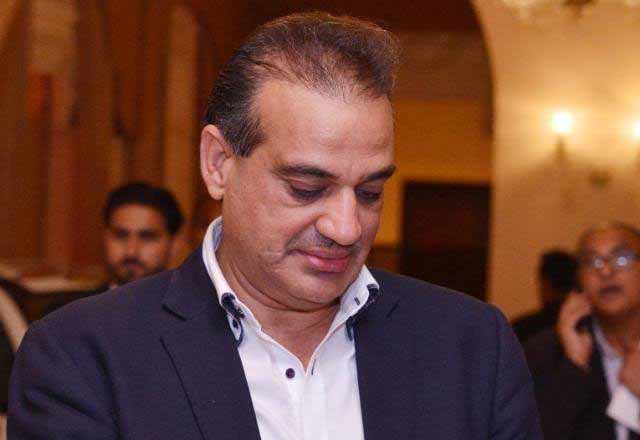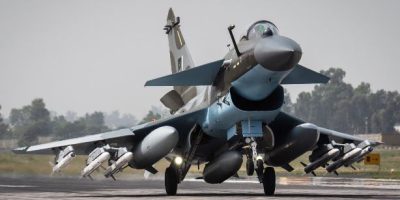Do we need a government of technocrats?

Comment
Ansar M Bhatti
Many interesting developments are likely to take place this week. Former Finance Minister Ishaq Dar is set to stage a comeback, as the court has barred security institutions from arresting him when he returns home. Then tomorrow the PML N Vice President Maryam Nawaz Sharif shall appear before the Lahore High Court seeking return of her passport. If she gets it then probably she will spare no time in flying to the UK for a rendezvous with her father – the PML N supremo – Nawaz Sharif.
Pakistan happens to be a unique country. It has hitherto served as a paradise for the haves and an inferno for the have-nots. Regardless of the magnitude of the crime one has committed, he can still go scot free if he is well connected; well-entrenched in the system and has a hell of money at his or her disposal. Pakistan has been witnessing this situation ever since its inception. The first 26 years of independence were marred by instability, bad governance, and tug-of-war for power. That is why no head of state or government could sustain in power for a long time. Such situations are quite ideal for military dictators to intervene and impose martial law. That is what the military leadership of the time did.
Nevertheless, right or wrong, it is an impression that Pakistan always progressed and prospered during the military rules. Field Marshal Ayub Khan is described as the best military leader under whose control Pakistan achieved a number of milestones such as infrastructural development and construction of dams. General Yahya Khan’s rule is widely regarded as a leading cause of the break-up of Pakistan. His tenure (1969-1971) was widely considered as a total disgrace to him and the country as well.
General Zia Ul Haq’s Martial Law that remained in force for 11 years can be categorized as an era of missed opportunities. Realistically speaking, the military dictators only grab power when they are convinced that the majority of people are with them. Since they enjoy absolute power and public backing as well therefore they are very well poised to take the country to any direction. General Zia chose to bank upon his narrative of islamisation of the country, which he never did. During his time, the spectre of sectarian violence emerged on the scene with full force thus triggering a number of killings of Shias and Sunnis. Ordinary people however were at ease as the dictator never allowed mafias to fleece the poor people. So, even with meager resources one could easily make his both ends meet in the Zia era. After his death in a plane crash in 1988, Benazir Bhutto came to power. Her government was removed after two and half years on the charges of corruption. Then Nawaz Sharif jumped into the fray. His tenure as prime minister also could not last for long. He too was sent home on corruption charges. Of course, there were certain other factors as well that led to his downfall. He also could not complete his tenure. Again Benazir Bhutto was chosen to lead the country. But her government met with the same fate and was sent packing on the same charges. It was the time when powers-that- be decided to give Nawaz Sharif a two-thirds mandate so that his government could carry out reforms needed to steer the country out of crises. But the so-called ‘ heavy mandate’ in fact proved quite heavy for the masses. Nawaz Sharif, tried to become ‘ ‘Amir al-Mu’minin” (the godfather). During his tenure, he first sent home the Chief of Army Staff General Jehangir Karamat simply because he had floated an idea of establishing a national security council.
The military ranks were certainly not happy the way General Karamat was shown the door. General Mussharraf was posted in Mangla when Nawaz Sharif was advised to consider him for the top slot. As those who were privy to this development would put it, General Musharraf had met the Prime Minister without letting his Army Chief know. Anyhow, he was asked to lead the army. Soon after taking charge as the COAS, General Musharraf during one his interactions with the military officers had made it clear that he was not General Karamat, sending a loud and clear message to the political leadership that any misadventure may cost it dearly.
The Nawaz-Musharraf bonhomie could not last for long. Sharif was under the impression as if he were the ultimate authority since he had the two-thirds majority therefore he started locking horns with General Musharraf. The events led to a realization among the stakeholders that they could not co-exist. Now the each side was waiting for an opportune moment to strike. General Musharraf, before departing for Sri Lanka, had taken into confidence his close generals. A senior bureaucrat, who held a key position in the Prime Minister’s office at that time, said that the Army never wanted to impose martial law. General Musharraf had told his generals that he would only react if the prime minister takes any decision against the him.
In October 1999, Musharraf took over. The immediate support which General Musharraf received after take-over was from PTI Chairman Imran Khan. People ostensibly were also on his side that is why he could survive as a dictator for a good time. General Musharraf was at his best during his first two years during which he introduced a number of reforms; did a lot to improve a lot of the poor people and contributed greatly towards ridding the country of the menace of sectarian violence. But also by the time he had developed a taste for power plus minions around him were able to sell the idea to him that he was a savior and without him country cannot survive. That was the time when downfall of Musharraf kick-started and ultimately he had to lose power, in a rather unceremonious way.
Then again the PPP and PML N got a chance to rule this country. PPP completed five years albeit their prime minister could not complete his term. Then came again Nawaz Sharif whose government was sent home through a judicial order. Imran Khan took charge in 2018 and ruled this country for around four years. His rule was also a mess like others. He could not deliver what he promised. Even the die-hard PTI workers had distanced them from the party because of the poor performance of his government. But then the no-trust move against him ultimately dislodged his government and brought in PML N, PPP and other allied parties. Imran Khan after his removal again became a hero from zero and now undoubtedly he happens to be the most popular leader of the country!!
A brief recap of Pakistan’s political history ostensibly provides a food for thought if our politicians or for that matter the military dictators can really lead this country to a developed, modern welfare state? In my view they simply can’t as long as the present system remains in vogue. This country needs a government of technocrats for at least three years that could undertake reforms in all sectors; streamline electoral systems in order to ensure free and fair elections. An effective anti-corruption mechanism will also have to be put in place besides carrying out across-the-board accountability. Without these measures any electoral drill will only be an exercise in futility and bring in the same old mindset that wants status quo to rule supreme in this country.
Related News

Strategic Siege: Is Pakistan Being Surrounded
Qamar Bashir Geopolitics has never been governed by sentiment. Not religion, not shared history, notRead More

Beyond swift retort to the relentless rise of Pakistan’s Air Power
by: Izmi Herlani Nations are not secured by rhetoric; they are secured by resolve. FromRead More


Comments are Closed